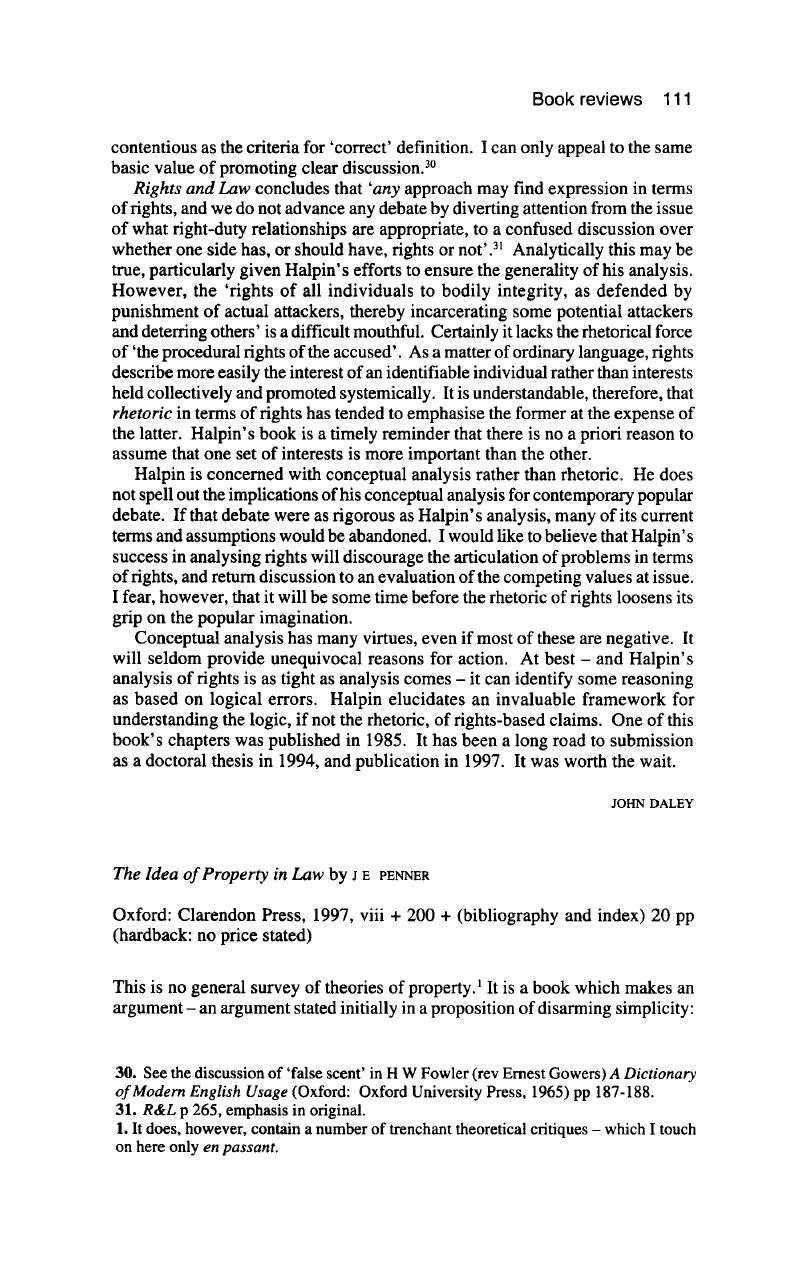No CrossRef data available.
Published online by Cambridge University Press: 02 January 2018

1. It does, however, contain a number of trenchant theoretical critiques – which I touch on here only en passant.
2. In this, as in much of the book, Penner acknowledges the influence of Joseph Raz, who supervised the D Phil thesis on which it is based.
3. Waldron was ‘acutely embarrassed by my use of “he” where I mean “he or she”’: Waldron, J The Righr to Private Property (Oxford: Clarendon Press, 1988) p viii Google Scholar. So should Penner be.
4. Contract is not just swept aside. Contract lawyers might like to look in particular at Penner's ‘transactional analysis’ from p 154 -though inclusion within satisfactory quality of durability in s 14(2B)(e) of the Sale of Goods Act 1979, as amended, if nothing else, suggests to me the denial of future obligations is flawed.
5. ‘An Unacceptable Face of Human Property’ in Birks, P (ed) New Perspective in the Roman Law ofProperty (Oxford: Clarendon Press, 1989)Google Scholar.
6. Despite a couple of significant misprints: p 100 - surely ‘should NOT count as abandoned’; p 103 - I think ‘has NO right to appropriate it’?
7. All my examples will be land-based. I do not suggest land is typical of all property; simply that it is too important to ignore.
8. At p 143, ownership is simply ‘when a person has a property right.’ Stating this earlier would have clarified previous argument. And I am not sure this is consistent with the discussion of residuarity at pp 150-151.
9. Clearest at p 15 1.
10. Penner uses this term in a general sense - creation of lesser rights.
11. K Gray ‘Property in Thin Air’ [1991] CLJ 252 at 305.